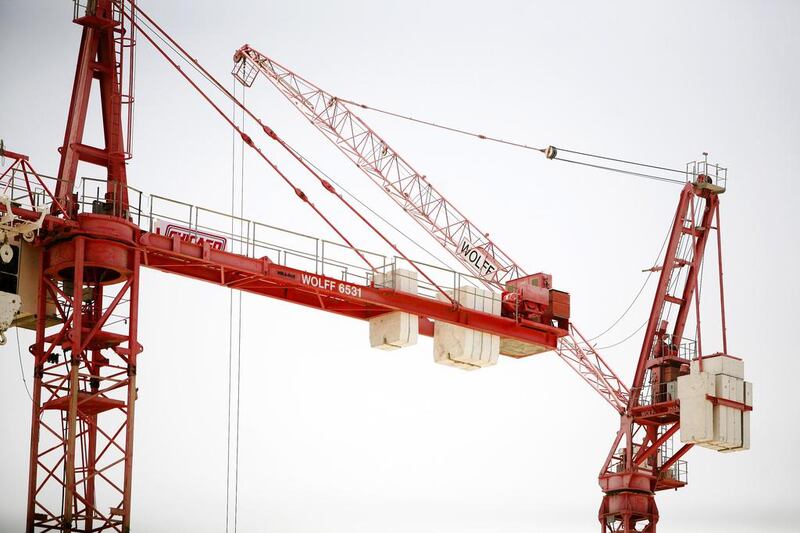Dubai's World Expo 2020 victory is focusing attention on the emirate's debt – estimated by one bank to be around US$103 billion – as it is expected to renew borrowing to fund projects linked to the event.
The Dubai Government has hinted that a sizeable chunk of the funding for the exhibition is likely to come from borrowing, either directly or from its stable of state-linked firms.
As much as $43bn in infrastructure projects would need to be developed in preparation for the event, Deutsche Bank estimated in a report released last week.
The expected borrowing comes as the emirate deals with an estimated $85bn in debt repayments due before 2017, according to the IMF.
“Potential positive growth spillovers from the Expo should help corporate deleveraging but risks of further Dubai Inc debt accumulation to fund capital expenditure would loom,” wrote Bayina Bashtaeva, a credit research analyst at Barclays, in a report released last week.
Dubai has been slowly paring down levels of indebtedness since state-controlled Dubai World requested a standstill on $25bn in debt in November 2009.
Still, the debt levels of the Government and state-owned companies remain large, having grown by $13bn from the third quarter of last year to about $103bn now, estimates Barclays.
Within the bond market, positive sentiment stemming from Dubai’s successful Expo bid, as well as wider gains in the overall economy, have helped spreads for Dubai credit reach record tight levels.
But high levels of existing indebtedness may affect the price of new sales within the market.
“The high external borrowing needs could increase Dubai’s borrowing costs given a crowded Dubai maturity schedule and still elevated leverage,” said Jean-Michel Saliba, Bank of America Merrill Lynch’s (BAML) economist covering Eastern Europe, the Middle East and Africa.
Of upcoming maturities, the most immediate focus is on $20bn of debt borrowed from Abu Dhabi’s Government and local institutions following Dubai’s debt crisis in 2009.
It comprises $10bn borrowed from the Central Bank, due in March, and a further $1bn owed to two Abu Dhabi banks, along with $9bn from the Abu Dhabi Government, maturing in November and December respectively.
In a research report released last week, Mr Saliba said he was confident Dubai would “appropriately manage” the debt.
Sheikh Ahmed bin Saeed Al Maktoum, the chairman of Dubai’s Supreme Fiscal Committee, said in September the Dubai Government was not in talks with Abu Dhabi to refinance the debt.
Many of Dubai’s stable of companies are also likely to be busy in debt markets in the near future.
Dubai World has a $4.4bn loan due in 2015. Analysts expect recent asset sales by the conglomerate to help service some of the debt.
Another company, Dubai Group, is reportedly still in negotiations to conclude a $10bn debt restructuring, expected to conclude a delay of repayments by 3.5 to 12 years.
Borse Dubai will have to grapple with $1.8bn in loans due between December and early next year, while Nakheel has $1.9bn in loans due in 2015. Both are expected to seek refinancing, according to Barclays.
Despite a crowded maturing debt schedule many companies are expected to take on fresh borrowing as they gear up for the Expo.
Nakheel, Emaar Properties, Dubai Electricity and Water Authority (Dewa) and Emirates Airline are among those likely to seek refinancing for their existing debt or raising money for growth in the coming two years, forecasts Barclays.
“We are cautious that the potential successful Expo 2020 bid could encourage Dubai and its corporates to undertake new large debt financed projects,” wrote Barclays’ Ms Bashtaeva. “This could increase corporates exposure to any post-expo economic slowdown if real estate prices were to face downward pressure.”





